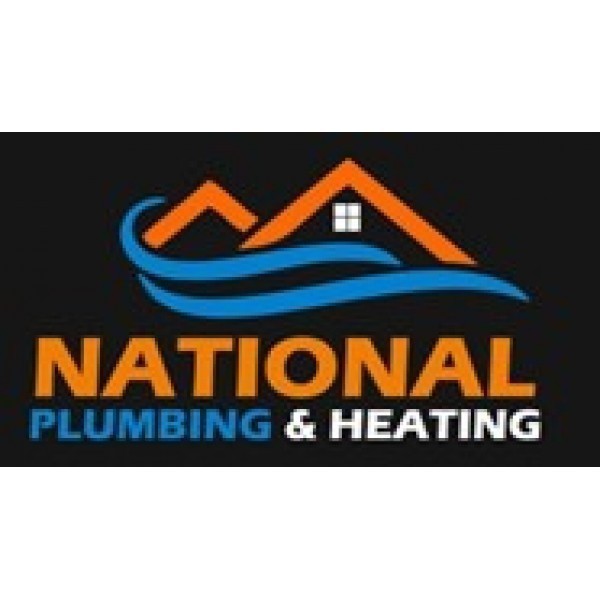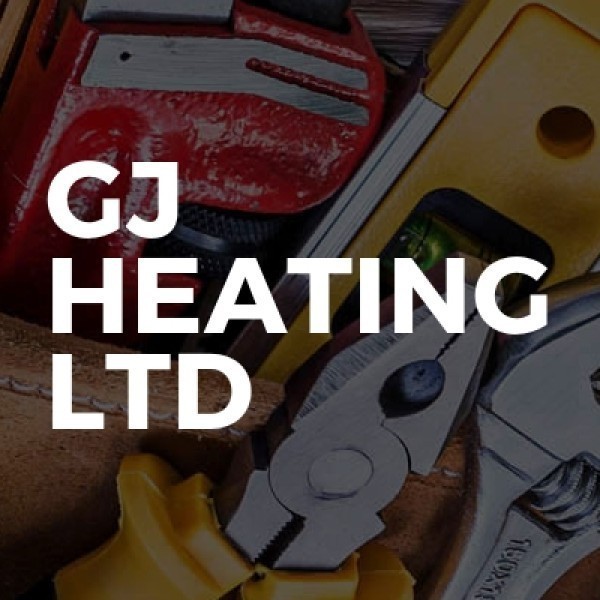Boiler/Heating Engineers in Congleton
Welcome to Hometech-Group, your go-to experts for all your heating and building needs in Handbridge and across Cheshire. As a trusted nam... read more »
National Plumbing And Heating is a renowned Bruche-based company, proudly serving the vibrant community of Cheshire. Spe... read more »
Welcome to Wilmslow Services Ltd, your trusted tradespeople in Pownall Park, Cheshire. We specialise in providing top-notch services incl... read more »
Welcome to GJ Heating LTD, your go-to experts for all things heating and plumbing in the heart of Chester and throughout Cheshire. As a l... read more »
Welcome to Dwellers Bathrooms and Kitchens, your trusted partner for all your home improvement needs in the heart of Blakenhall, Cheshire... read more »
Welcome to Spark Heat Electrical & Heating Solutions Ltd, your go-to experts for all things electrical and heating in Middleport and acro... read more »
Eco Energy Services Limited is a premier provider of boiler and heating engineering services, proudly serving the vibran... read more »
Welcome to BrightBurn Solutions LTD, your go-to Boiler and Heating Engineers in Blurton, proudly serving the entire Staffordshire region.... read more »
Stoke Heating Solutions Ltd is your go-to expert for all things related to boiler and heating services in the heart of <... read more »
Meco Gas And Heating Services is your go-to solution for all your plumbing and heating needs in the heart of Lat... read more »
Welcome to 66 Housing Maintenance, your trusted partner for all your home improvement needs in Bentilee and the surrounding areas of Staf... read more »
RAC: Your Trusted Tradespeople in Helsby and... read more »
Heat Safe Gas Services is your go-to... read more »
Welcome to Boiler Boy, your trusted Boiler and Heatin... read more »
Welcome to AJM Gas Services, your trusted Boiler and... read more »
Winterson Technical Services proudly... read more »
Welcome to LB Heating & Property Maintenance, your go... read more »
Welcome to Gasmaster, your trusted Boiler and Heating... read more »
Welcome to Gasmaster, your trusted Boiler and Heating... read more »
SJD Gas Services Ltd: Premier Boiler and Heat... read more »
Search Boiler/Heating Engineers in places nearby
Understanding the Role of Boiler/Heating Engineers in Congleton
Boiler and heating engineers play a crucial role in ensuring the comfort and safety of homes and businesses in Congleton. These skilled professionals are responsible for installing, maintaining, and repairing heating systems, which are essential for providing warmth and hot water. In this article, we will explore the various aspects of their work, the skills required, and how to choose the right engineer for your needs.
The Importance of Boiler and Heating Systems
Boiler and heating systems are vital components of any building, especially in regions like Congleton where the climate can be quite chilly. These systems provide the necessary heat to keep indoor environments comfortable and safe during the colder months. Without them, residents and businesses would face significant challenges in maintaining a suitable living and working environment.
Types of Boiler and Heating Systems
- Combi Boilers: These are compact units that provide both heating and hot water without the need for a separate water tank.
- System Boilers: These boilers require a cylinder for storing hot water but do not need a water tank, making them suitable for larger homes.
- Conventional Boilers: Also known as regular boilers, these systems use both a cylinder and a tank, ideal for homes with multiple bathrooms.
Key Responsibilities of Boiler/Heating Engineers
Boiler and heating engineers in Congleton are tasked with a variety of responsibilities that ensure the efficient operation of heating systems. Their duties include:
- Installation: Setting up new boilers and heating systems in residential and commercial properties.
- Maintenance: Conducting regular checks and servicing to prevent breakdowns and ensure optimal performance.
- Repairs: Diagnosing and fixing issues that arise with heating systems to restore functionality.
- Upgrades: Recommending and implementing system upgrades to improve efficiency and reduce energy costs.
Skills and Qualifications Required
To become a successful boiler/heating engineer in Congleton, individuals must possess a combination of technical skills and formal qualifications. These include:
- Technical Knowledge: Understanding the mechanics of various heating systems and the ability to troubleshoot issues.
- Certification: Engineers must be Gas Safe registered, ensuring they are qualified to work safely with gas appliances.
- Problem-Solving Skills: The ability to quickly identify and resolve issues with heating systems.
- Customer Service: Communicating effectively with clients to understand their needs and provide solutions.
Choosing the Right Boiler/Heating Engineer in Congleton
When selecting a boiler/heating engineer in Congleton, it's important to consider several factors to ensure you receive quality service. Here are some tips to help you make the right choice:
- Check Credentials: Verify that the engineer is Gas Safe registered and has the necessary qualifications.
- Experience: Look for engineers with a proven track record and positive customer reviews.
- Cost: Obtain quotes from multiple engineers to compare prices and services offered.
- Availability: Ensure the engineer can accommodate your schedule and respond promptly to emergencies.
Common Issues with Boiler and Heating Systems
Boiler and heating systems can encounter a range of issues that require professional attention. Some common problems include:
- No Heat or Hot Water: This could be due to a malfunctioning thermostat, broken diaphragm, or airlock.
- Leaking and Dripping: Leaks can occur due to a variety of reasons, including a broken internal component or corrosion.
- Strange Noises: Banging, whistling, or gurgling noises may indicate air in the system or low water pressure.
- Low Boiler Pressure: This can be caused by a water leak or a faulty pressure relief valve.
Preventative Maintenance Tips
Regular maintenance is key to ensuring the longevity and efficiency of your boiler and heating system. Here are some tips to keep your system in top condition:
- Annual Servicing: Schedule a professional service once a year to check for potential issues and clean components.
- Bleed Radiators: Regularly bleed your radiators to remove trapped air and improve heating efficiency.
- Check Pressure: Monitor the boiler pressure and top up as needed to maintain optimal performance.
- Insulate Pipes: Insulate pipes to prevent heat loss and reduce the risk of freezing during winter.
Environmental Impact and Energy Efficiency
Boiler and heating engineers in Congleton also focus on improving the energy efficiency of heating systems to reduce environmental impact. By upgrading to modern, energy-efficient systems, homeowners can lower their carbon footprint and save on energy bills.
- Condensing Boilers: These boilers are more efficient as they recover heat from exhaust gases.
- Smart Thermostats: Installing smart thermostats allows for better control over heating schedules and temperatures.
- Regular Maintenance: Keeping systems well-maintained ensures they operate efficiently and use less energy.
Future Trends in Boiler and Heating Technology
The field of boiler and heating technology is constantly evolving, with new innovations aimed at improving efficiency and sustainability. Some emerging trends include:
- Hydrogen Boilers: These boilers use hydrogen gas, which produces no carbon emissions, as a potential alternative to natural gas.
- Heat Pumps: Heat pumps are gaining popularity as they transfer heat from the ground or air, offering a renewable energy source.
- Smart Home Integration: Integrating heating systems with smart home technology for enhanced control and monitoring.
Frequently Asked Questions
- What qualifications should a boiler/heating engineer have? Engineers should be Gas Safe registered and have relevant certifications in heating systems.
- How often should I service my boiler? It is recommended to service your boiler annually to ensure it operates efficiently and safely.
- What are the signs of a faulty boiler? Common signs include no heat or hot water, strange noises, and leaking or dripping.
- Can I install a boiler myself? No, boiler installation should be carried out by a qualified and registered engineer to ensure safety and compliance with regulations.
- How can I improve my boiler's efficiency? Regular maintenance, upgrading to a modern boiler, and using smart thermostats can improve efficiency.
- What is the lifespan of a typical boiler? A well-maintained boiler can last between 10 to 15 years, depending on the type and usage.
Conclusion
Boiler and heating engineers in Congleton are essential for maintaining the comfort and safety of homes and businesses. By understanding their role, the systems they work with, and how to choose the right professional, you can ensure your heating system operates efficiently and reliably. With regular maintenance and attention to emerging technologies, you can also contribute to a more sustainable and energy-efficient future.
















